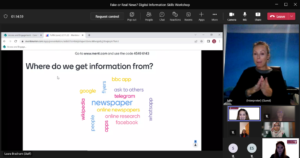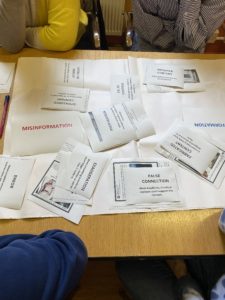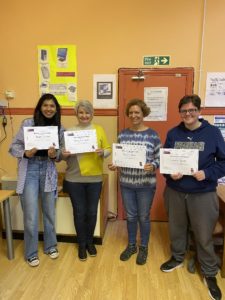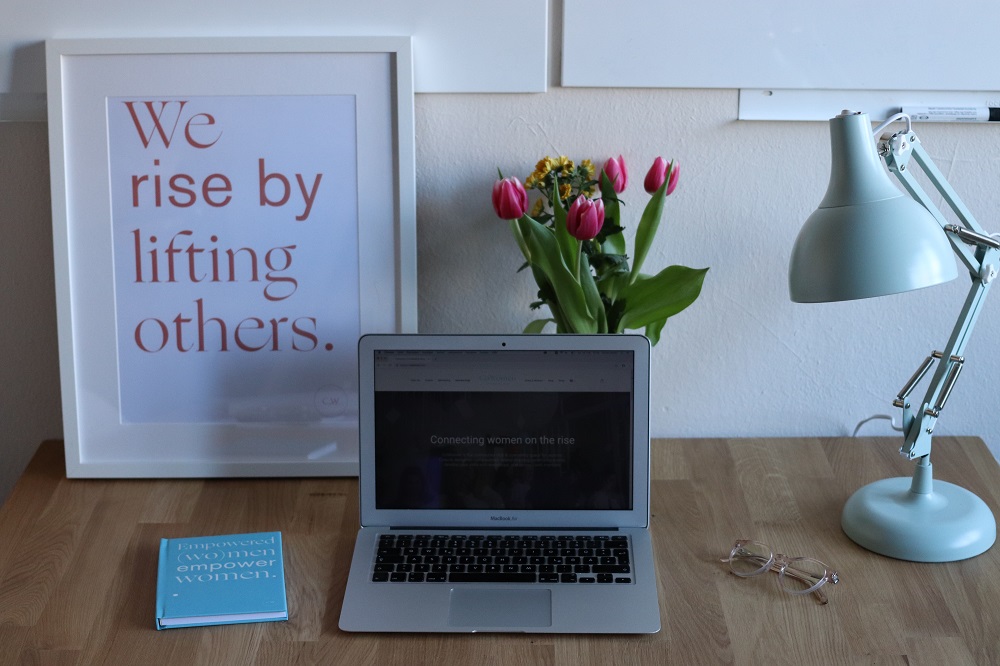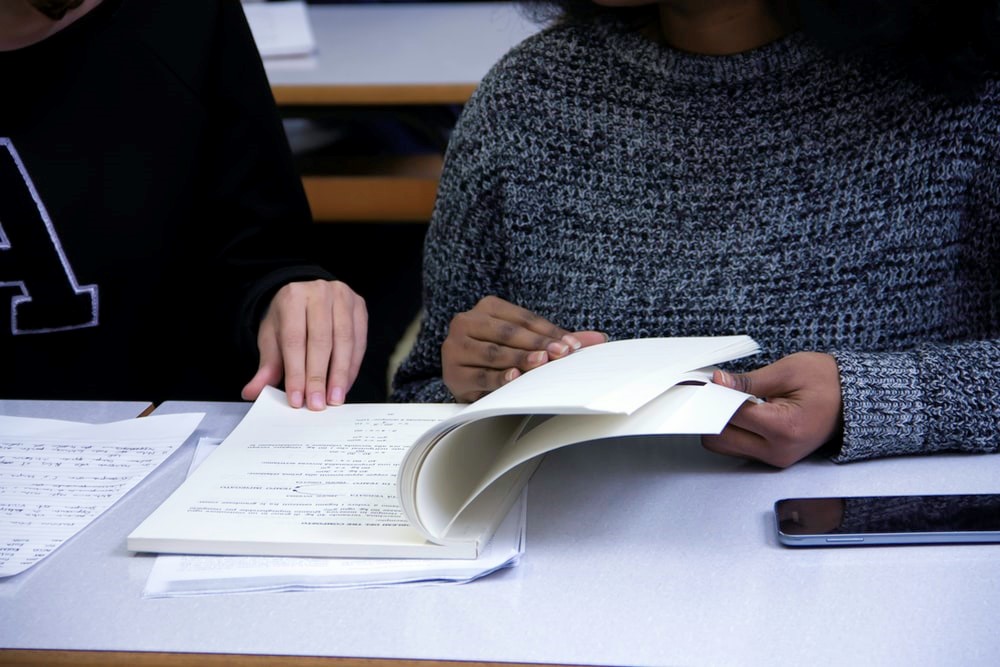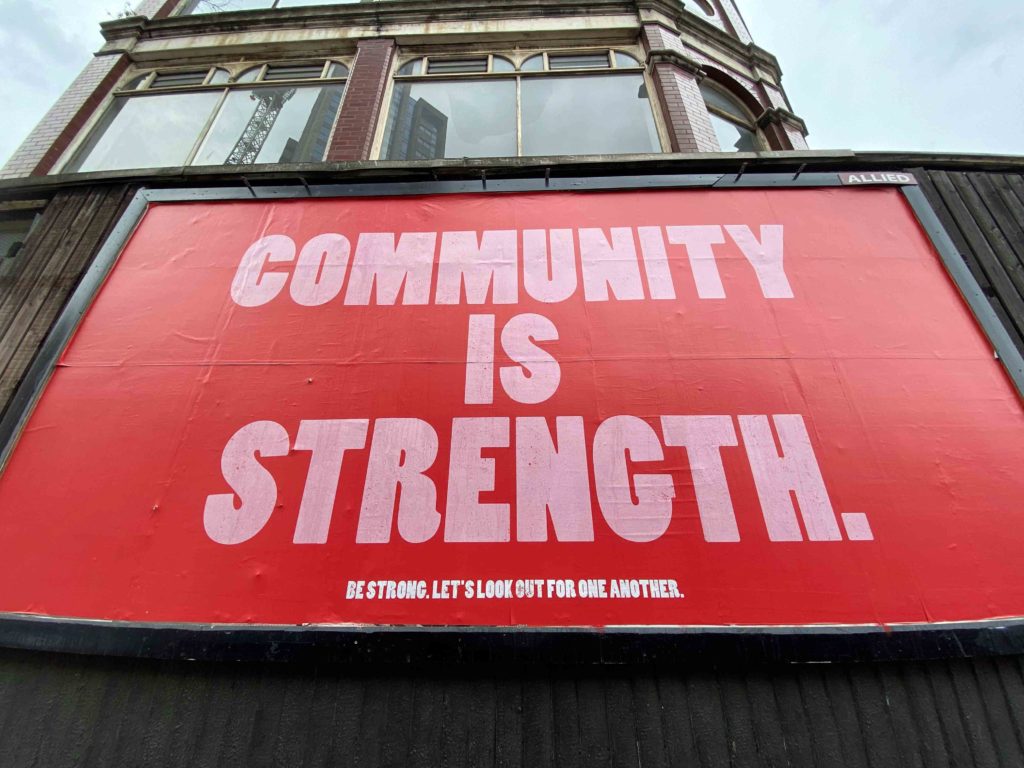Anna Hetherton, Access Officer for the Adult and Community strand of Birkbeck’s Access and Engagement department, shares details of the ‘Fake or Real News?’ Digital Information Skills Workshop that Access and Engagement have developed
As the Adult & Community team in the Access and Engagement department of Birkbeck, it is our role to foster relationships with community partners and adult learning groups to provide relevant and fulfilling learning opportunities to those in the boroughs of Camden and Newham. By collaborating closely with these partners, we are able to combine key priorities of residents to create a useful and novel outreach project.
A common theme identified across the adult learning sector was the number of adults who had been digitally upskilled, out of necessity, over the lockdown period. Many people were using smart phones and the internet for longer periods of time and in a different way than they had expected. Although many organisations had successfully stepped up to support people by providing technology and tutorials, there was still a gap in learning how to navigate information once people gained access to the online world.
As the public moved life online, so did scammers, news outlets, retailers and businesses. With the arrival of the COVID-19 vaccine there was an influx of information sharing, news, and of course – fake news. Partners identified that low vaccine uptake was a key priority within both target boroughs and was directly impacted by fake news.
In response, the ‘Fake or Real News’ workshops were created. These workshops are light touch, drop-in sessions that address these themes, relate higher education to everyday life and give people tangible tools to help them navigate information online.
The importance of conversation
As with all our work, we take a holistic, strengths-based approach. The session does not aim to “give” participants a skill they are lacking, but to bring focus to a skill they use every day and give that skill recognition and a space to put it into practice.
Using real life case studies and videos, participants practice the tangible steps to analysing a piece of information outlined the workshop. This always brings about thought provoking and fruitful discussions. Since September, we have run this workshop over ten times for different audiences, and no two discussions have been the same. Participants bring stories from their own lives to the table – perhaps a scam they came across or two conflicting articles on their newsfeed. This process sees participants complicate the world of online information, cultivating nuance. Personal anecdotes are valued and woven into the discussion as evidence and a key part of the workshop, showing attendees they are already critical thinkers. Even shy participants become involved with interactive elements like a quiz involving an online dating orangutan. As the workshop evolves, we have found new ways to spark conversation and debate in these sessions.
One activity uses real life case studies of fake news and challenges the participants to think about the intention and impact of the pieces. Did they mean to cause harm? Were they trying to sell us something? The debate and the conflicting opinions urge participants to inadvertently think critically, challenge their own perceptions and put across their opinions in a logical structured way.
Realising classroom skills
Ultimately, the goal of the Access and Engagement team is to break down the barriers people face to higher education. Through our Fake or Real News? workshops participants:
- Realise and practice their critical thinking skills
- Increase confidence in a classroom setting and group discussion
- Witness how lived experience belongs in classrooms, and in turn understand that learning is for everyone
- Consider next steps in learning and skill development
- (In some cases) engage with an online learning environment
During one workshop, a participant looked at the opening slides and stated, “I think this might be a bit beyond me”. They approached the content cautiously, but once the conversations and activities began, they realised that they could engage thoroughly, because their own experience and skillset was everything they needed. It is this shift in mindset that these workshops aim to achieve. By the end, this same participant said “brilliant… everyone should do this”.

